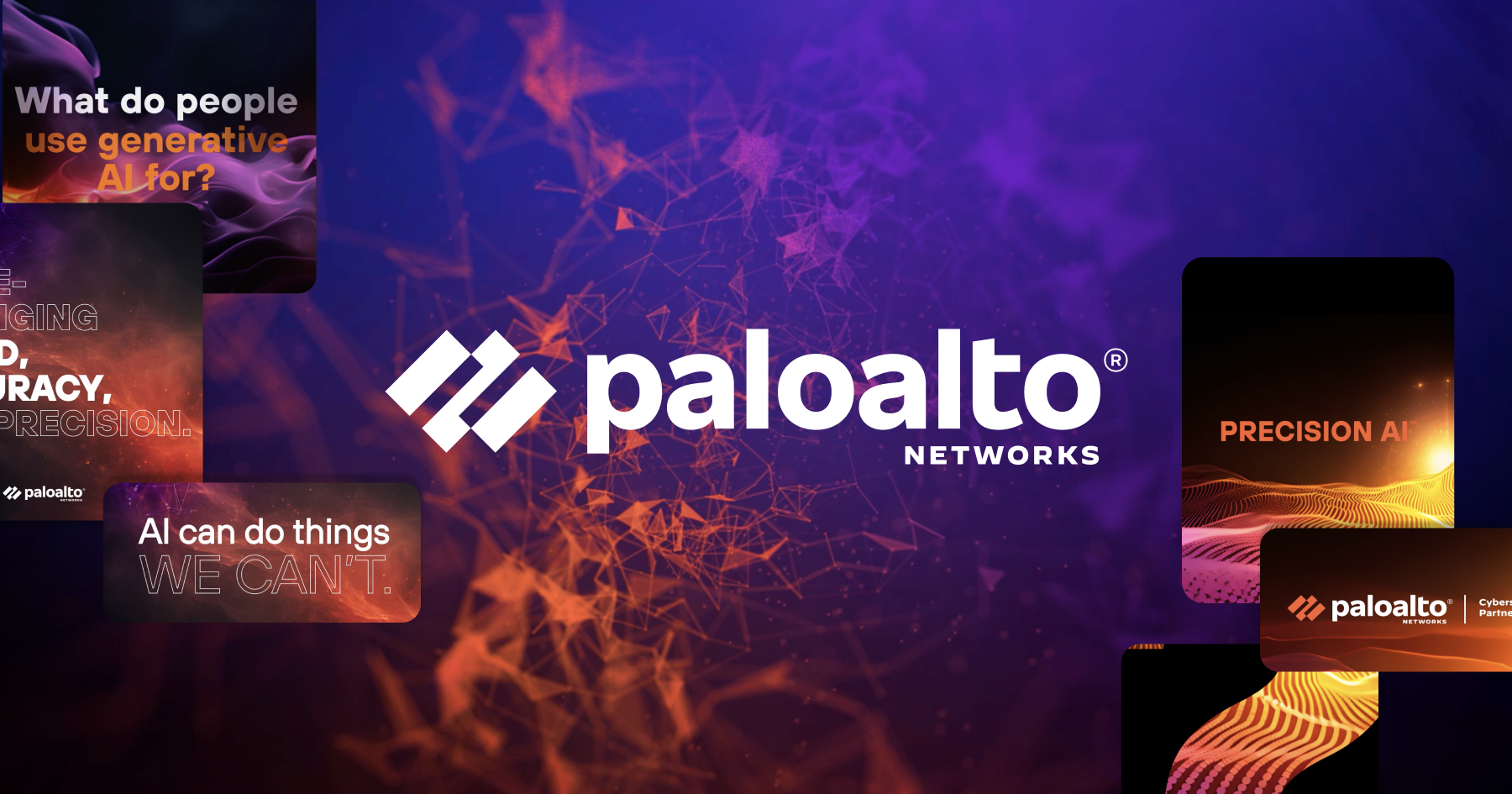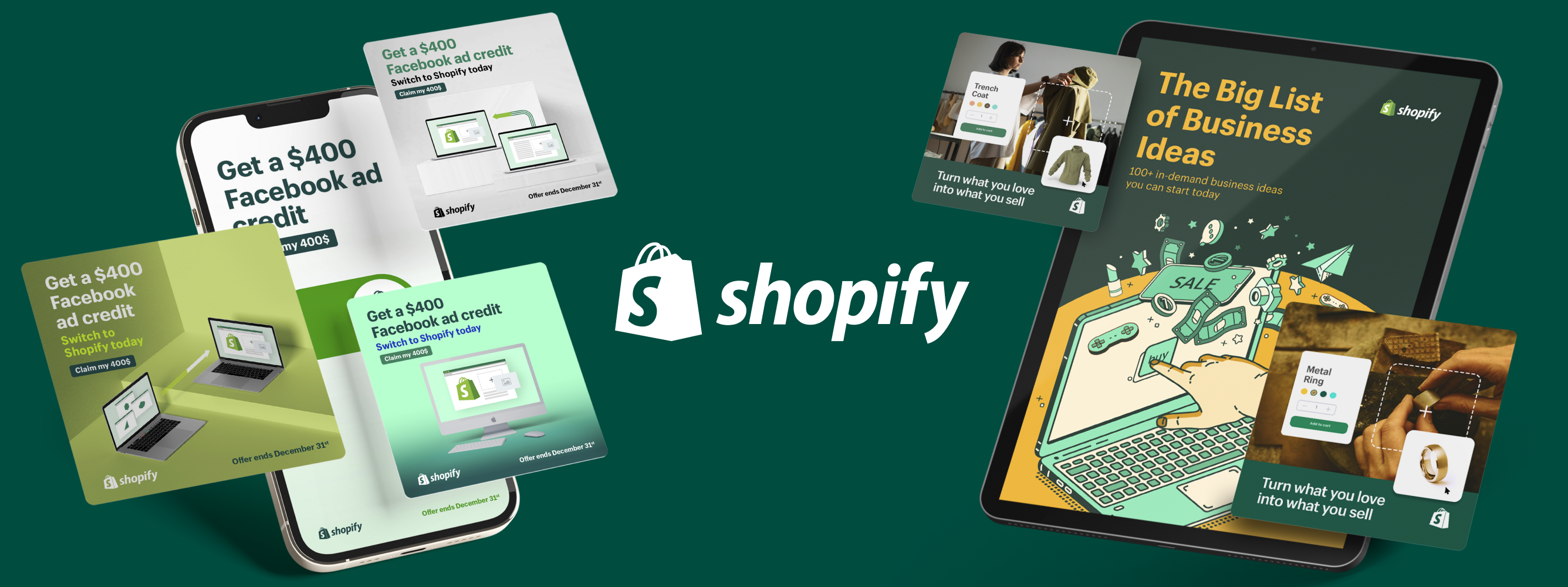7 Top Event Marketing Trends in 2025 Shaping the Future

Event marketing is thriving, offering tangible, face-to-face value for businesses and their target audiences. We spoke with Monika Żmuda and Diana Kolesarova, Superside’s Event Marketing Experts, about the event marketing trends 2025 has in store.
Event marketing is quickly evolving in an increasingly AI-driven world. From dramatically improving personalization to matching attendees based on shared interests, business goals and complementary needs, AI is injecting new life into a format that’s as old as the hills.
Whether it’s in-person events or experiential marketing in the form of hybrid or virtual events, event marketing is a channel your B2B business will keep using frequently to position and engage with target audiences.
For enterprises, events like Superside’s thought leadership summits and major gatherings like INBOUND, provide excellent marketing opportunities. You can connect with potential partners, showcase your unique offerings, and drive better business outcomes.
It’s no wonder 95.5% of organizers say virtual events will be part of their marketing strategy this year. On the B2B front, nearly 89% of marketers say that webinars were more effective than other channels in generating qualified leads.
In 2025, Superside’s experts, Diana Kolesarova and Monika Żmuda, anticipate event opportunities that will be increasingly adopted by companies to meet business goals. To get a sense of the future of event marketing, we asked our team to share their insights and tips.
Tips for an Event Marketing Strategy That Converts
Whether in-person events or experiential marketing in the form of hybrid or virtual events pique your interest, event marketing is a practice your B2B business cannot afford to overlook.
In 2025, brands need strategic thinking, meticulous planning and seamless execution to underscore engaging event experiences.
To create a brilliant event marketing campaign that generates qualified leads and business growth, it’s critical to:
1. Define clear objectives and KPIs
Before planning your event, clarify its purpose. Is your primary objective building brand awareness, generating leads, launching a product or service or growing a network or database?
This clarity helps establish relevant key performance indicators (KPIs)—like registration numbers, attendance rates or post-event engagements.
Use the SMART framework to define your KPIs. Your goals should be:
- Specific
- Measurable
- Achievable
- Relevant
- Time-bound
2. Understand your target audience
Event marketing is a brilliant route for connecting directly with audiences: 64% of consumers retain positive impressions of brands they’ve encountered at a live event. The same likely counts for B2B event attendees.
To ensure your event messaging lands as planned, use data-collecting tools to understand your audience’s needs, expectations and challenges/pain points. The main ways of doing target audience research include:
- Market and competitor analysis
- Social media research
- Connecting with industry influencers
- Post-event surveys
According to your business and industry, these tools could get crossed or using even more data tools to get a bigger picture.
3. Use technology wisely
Tapping into the latest technology is essential for event planners hoping to succeed in 2025:
- AI and data-analysis tools can identify optimal marketing strategies and tactics ahead of time.
- Hosting virtual events with state-of-the-art event software can boost accessibility for target customers. At Superside, for example, we’ve successfully hosted online-first webinars for creative and marketing leaders globally.
- Different tools (including generative AI) can help you create long-form and short-form content for your event campaigns.
- For post-event analysis, you can integrate event technology tools with your CRM, reducing manual work and minimizing errors by accessing key metrics efficiently.
We’re thrilled to leverage innovative tools, especially AI, to enhance our event processes. By integrating a variety of tools into our workflows, we’ve achieved greater speed, efficiency and program scalability.

4. Create engaging content and moments
Publishing engaging content can build brand awareness and excitement before your event. Make your event stand out on social media platforms and other channels with compelling speaker profiles and previews of what to expect.
Multi-media posts with visually appealing graphics can also help attract attention during the pre-event marketing phase.
Think of effective ways to keep participants engaged at the event. Consider incorporating fun networking activities and icebreakers to encourage conversation.
It’s also important to accommodate your more introverted attendees, who might not feel comfortable speaking up. For example, make sure someone is responsible for introducing people with similar interests.
Personality types matter, especially post-COVID, as many struggle with extroversion. Unease in crowds and reluctance in networking make it essential to create structured environments where individuals feel included without pressure to speak publicly.

This is not just a nice-to-have setting. These accommodations will positively speak for your event and your brand, too.
Remember to engage audiences personally after the event through personalized emails, social media interactions and post-event surveys to know what to iterate or what to do better for the next one.
5. Measure and analyze results
Competing for time and attention requires constant innovation, and the right tools are key to delivering seamless, valuable experiences.

To evaluate your event’s success, assess your event data against KPIs and the intended outcomes you established at the start.
Use data insights and tools to determine if you met your targets, identify successes and pinpoint areas for improving future events.
Remember why you’re organizing events and who they’re for. Crafting an event means tailoring the experience to your audience, so engage in the conversation with them.
As Event Managers, it’s easy to get caught up in logistics and miss trends or shifts in the industry, your audience’s feedback is helpful for staying relevant, whether it’s refining content, improving networking, or enhancing the overall experience.

Keeping abreast of emerging event trends in 2025 can also ensure you create a memorable event that drives business growth. Here’s what to watch for this year on event marketing trends:
- Greater focus on building community
- Cross-functional collaboration
- Smaller, more exclusive experiences
- Repurposing event content
- Post-event summaries and accessibility
- All-in-one event platforms
- More sustainable, greener events
7 Event Marketing Trends for 2025
Changing consumer behavior and technological advancements are reshaping event marketing. We’ve curated seven key event industry trends to watch and added expert advice on how to make your event stand out this year.
1. Prioritizing community building
Audiences crave authentic connections, making community-building a top priority. This involves ongoing engagement and sharing high-quality content beyond the event itself.
Use events to build a strong community by creating spaces for interaction, like Slack channels or social groups.
Keep regular touchpoints with newsletters, webinars or blog posts. But be careful not to overwhelm your audience with frequent or sales-driven pushes. Focus on nurturing the trust you gained during the event through personalized, valuable connections.

Communicate directly with attendees, seek feedback and genuinely listen to their responses. While one-off events are valuable, they should serve as platforms for meaningful dialogue and connection.
2. Cross-functional collaboration
Effective event marketing requires collaboration across all departments. Involving sales teams, subject matter experts (SMEs) and marketing departments better align events with market expectations and enhance post-event marketing strategies.
Event marketing serves as a unifying force across all functions within an organization—something we’ve experienced firsthand at Superside. For major events, teams from marketing, sales, revenue operations, UX, development and leadership collaborate to launch, promote and contribute as subject matter experts, driving the event's success.

It’s critical to use your resources and knowledge efficiently. This includes selecting relevant topics, maximizing the impact of your content and organizing follow-up activities. Your entire team must be fully engaged in this process.
When you collect feedback, implement it visibly. If people see their input ignored, they’ll be less likely to share in the future.

Listening to their insights builds trust and creates better events.
3. Rise of smaller, exclusive experiences
Intimate, exclusive events cultivate deeper connections for attendees. While large multi-day conferences attract thousands, smaller formats can be more effective for achieving specific marketing objectives.
According to the format—roundtables, workshops or unique in-person experiences like private booths at concerts and private dinners—these smaller events tailor interactions that help brands build stronger, more authentic relationships with their audiences.
Smaller, exclusive events foster deeper connections among attendees by encouraging trust, meaningful conversations and open sharing of insights. They also enable brands to engage more effectively with their target audience by tailoring the experience to a select group (vs. a few hundred or thousand attendees). At Superside, these events play a key role at the bottom of the marketing funnel, consistently driving new business opportunities.

One exclusive experience we offer to all creative teams and leaders across multiple industries is our virtual events and summits. Here, we connect with worldwide creative and marketing leaders to discuss and learn about the key trends, topics and strategies that lead us to the future of AI, design and much more. You can watch them for free today!
4. Content repurposing
Events are excellent sources for creating new marketing content. Recorded event content can become bite-size clips and trending short-form videos, guides and resources for social media and other channels.
Think about your favorite show—the one where you can’t wait to see what happens next. A well-planned event series works the same way, building a lasting connection between your brand and its community.
A great standalone event can draw a crowd, but it won’t create anticipation. Your event storytelling should explore diverse themes, with each "episode" diving into unique topics, keeping your audience engaged and eager for more.

Deliver consistent value, insight, and inspiration—and don’t disappoint with the series finale! ;)
This extends the lifespan of the event’s impact and drives a higher ROI. In 2025, look for increasingly advanced tools and platforms that help create shareable, impactful post-event content without additional work. Think generative AI and transcription software as tools for this. Or consider Superside as a top choice for event marketing asset design at scale.
5. The "TL;DR" approach to post-event accessibility
Life is busy, which means getting people in a room together for live events can be challenging. It’s also unlikely people will watch a two-hour recording of a session after the event.
This is why many event marketers take a “Too Long; Didn’t Read” (TL;DR) approach (like the one above this article!)
Make shareable, easy-to-digest content available to your audience by providing concise event summaries and key insights. This increases the likelihood of retention and broadens your event's impact and value to a larger audience. It also helps enhance post-event engagement.
Engagement shouldn’t end when the event does. Keep the momentum going, by following up with emails summarizing key learnings, sharing resources and, if your strategy is to offer on-demand recordings, make them available as quickly as possible to keep the event fresh in their minds. In the fast-paced virtual world, timing is crucial.

Another way to go further and adapt this trend to your organization is to prepare a resource list that you can include in each post-event activity.
Depending on the topics covered, you can help people go deeper into what the speakers talked about and reinforce the message (and image) you would like them to take away from the event and your brand. Think about:
- Specialized literature
- Links to reputable, educational articles, graphic resources, etc.
- A list of tools mentioned during the session
- Frameworks and templates to start an idea covered during the event
- And much more
6. All-in-one event platforms
Event management can be complex, involving various components and unexpected challenges. All-in-one event platforms streamline operations by integrating everything from logistics to virtual production.
These tools manage tasks such as getting email confirmations, creating branded landing pages, live streaming and analyzing post-event data.
Annually, we evaluate our tech stack to ensure seamless integration with the tools used by our marketing, revenue operations and sales teams. Automation is essential, especially as our events often draw thousands of registrants. We also stay attuned to industry trends and audience preferences to shape event formats, prioritizing ease of participation and value delivery.

In 2025, the use of AI-driven marketing tools will explode. These tools enable businesses to automate tasks, reduce manual workloads and minimize errors, letting marketing teams to focus on strategy instead of logistics. Try one of these event marketing management platforms for this:
7. Emphasis on sustainability
Sustainability is no longer a new trend but a business imperative. Contemporary audiences are well-informed and issue-driven, expecting event organizers to minimize waste and reduce their environmental impact.
The future of event marketing includes green venue selection and tapping into sustainable technologies. Partnering with vendors to provide reusable swag and support charities/nonprofits is also gaining traction. See what works for you best and show it to the max.
How Superside Will Serve Your Corporate Event Marketing Strategy
Pulling off a successful event marketing campaign can be a big ask for stretched marketing teams. Successful events require a creative crew capable of delivering virtual event branding and compelling visuals, engaging content, cohesive campaigns and flawless logistics.
Superside is the ideal partner for enterprises looking for high-performance event marketing executed quickly and precisely. We offer a comprehensive suite of creative and concept-creation services that deliver on your vision quickly and effectively.
With hundreds of successful projects completed—including many of our own events and summits—you’re in good hands. Take the 1,000 creative assets we delivered for Amazon in just three months or the work we completed for D2L Brightspace. Both projects demonstrated how we use AI in innovative ways to save our customers time, money and effort.
From elevated brand storytelling to scroll-stopping social media content to support your event, our creatives can help you win at this game.
Note that our creative subscription services extend far beyond event marketing and include:
- Ad creative
- Graphic design
- Illustration design
- Motion graphics
- Video services
- Concept design
- Content creation
- PPC management
- Multi-channel strategies
- Programmatic advertising
- Social media creative
- Social media video content
- Social media response guide
Starting at $6,000 per month, a dedicated Superside team can seamlessly extend your in-house capabilities to the max.
This is scalable and flexible for Superside at any time. With our AI-enhanced workflows, dedicated teams designated for your needs only and the ability to manage high-volume marketing campaigns for as long as they take, we'll support all your event and branding assets at record time without sacrificing quality.
Superside: Your Ultimate Event Marketing Partner
Staying ahead of the curve in event marketing in 2025 requires innovation, strategic thinking and a thorough knowledge of the best available tools and services.
Interested in a demo? Book it today.
Emanuel is a Content Specialist at Superside. With the knowledge that three languages (and counting) and digital marketing can serve a creator, he has helped B2Bs from multiple industries to write, optimize and scale their content game with compelling pieces that answers questions and solve problems. On Superside, Emanuel streamlines content ideas into powerful articles that guides you on how to use Superside multi-powered services to scale your business to the max.
You may also like these

The creative power of data: How to go beyond numbers
Over the last ten years, access to marketing data has gone from a slow drip to a virtual tsunami of performance data, social media metrics and marketing analytics. Creative teams are swimming in data—unfortunately, without lifeguards.We've talked to over 200 creative leaders who, like you, wish data came with a mute button. In our Overcommitted Report, 76% of leaders said they feel burned out, and 78% say the demands on their teams are exceeding their capacity.The solution? Using data to improve workflows and inspire your team.The problem? Knowing how to cut through the noise (and the data points) to focus on what matters.Simply put, it's not how much data you have but what you do with it. We were lucky to have two creative leaders, Malik Sulieman, Creative Director at Cash App, and Ryan Hammill, Creative Director at ServiceNow, join us on our Overcommitted Virtual Summit to share how they pair data and creative insights to reduce burnout and help their teams create fantastic work.
Enterprise Graphic Design RFP Best Practices (Checklist Included)
For enterprise and mid-market businesses looking to enhance their creative capabilities and scale overall capacity, issuing graphic design RFPs are an essential part of the formalized procurement process for agencies, contractors and other external partners.RFPs create a structured, transparent framework for assessing and comparing service proposals from different outsourced creative partners.As an internal stakeholder, your opening role is to lay out your creative needs and timelines, communicating efficiently to prospective partners exactly what you’re looking for in a business relationship.In turn, these prospective creative service partners are asked to put their best feet forward demonstrating why their capabilities, capacity, skills, tools and scale are the best fit.On average, respondents spend around 30 hours of writing time developing their proposals. While it varies, you can expect to put just as much time into writing your RFP, evaluating the responses, communicating with procurement and selecting the winner of your work and budget.
8 Creative Agency RFP Templates for Enterprise Teams
Creative agency requests for proposals (RFPs) are conversation starters—incredibly important icebreakers.Mid-market and enterprise teams issuing the requests are introducing their brands, key business challenges and expectations of their creative service partners. Conversely, prospective partners use this information to pull together their responses.It’s a high-stakes, high-effort process for everyone. Communication breakdowns mean neither side gets what they need. More than ⅓ of brands get incomplete or inaccurate responses to their creative service RFPs.












